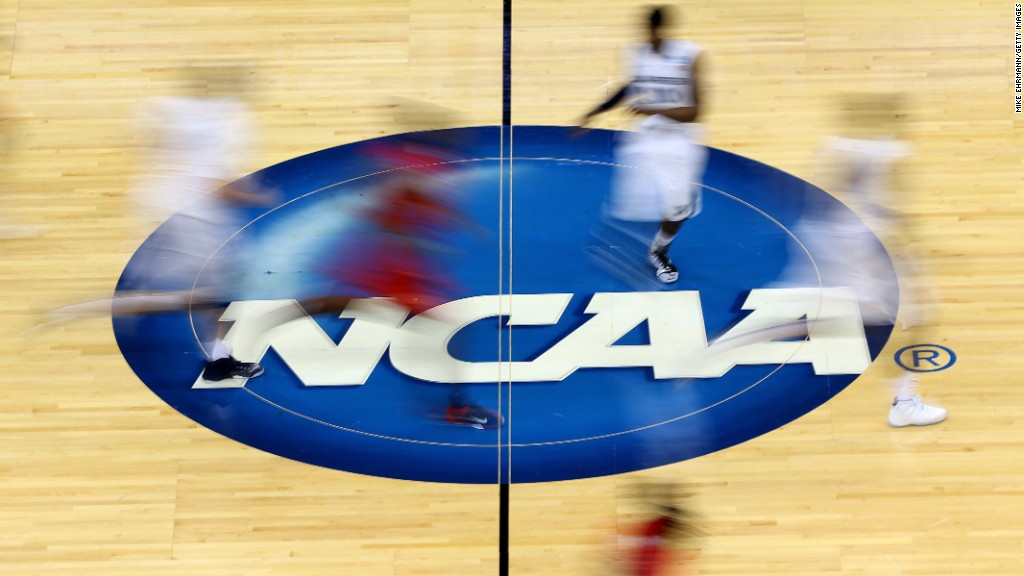
ESPN will profile Kentucky's John Calipari next month in the documentary "One and Not Done," which explores how the controversial coach has capitalized on the so-called "one and done" rule, which treats college basketball like a fleeting stopover for stars en route to the pros.
Yet if the system that has existed for the last 12 years has damaged the sport, as some analysts and coaches interviewed for the project contend, the NCAA Tournament has remained largely unscathed, an almost-perfect media construct among such championship events.
Part of that has to do with the tournament's "sudden death" format, the "win or go home" formula that makes every game a high-stakes exercise. The 68-team field also provides millions of fans across the country a rooting (and not incidentally, gambling) interest, with CBS having shrewdly partnered with Turner Sports to make every early contest available across multiple channels.
(CNNMoney, like Turner Broadcasting, is owned by Time Warner.)
In a way, possessing modest knowledge of college basketball only enhances the tournament experience, at least in the opening rounds. One needn't be particularly conversant in the schools to know that a No. 2 seed playing against a No. 15 is a David-and-Goliath-type struggle, creating enormous drama when one of the underdogs wins.
Never mind that the disparity between top teams and lesser ones has been diluted by the one-and-done formula, or that the quality of action has diminished because most of the best players move on to the NBA so quickly.
The amazing part about the tournament is that for a few weeks every year, the excitement that surrounds it generally dispatches the frequent gripes leveled at college basketball, summarized in a headline that flashes across the screen during the Calipari documentary proclaiming him "The Sleaziest Coach in a Sleazy Game."
Veteran coach Jim Calhoun, for one, is among those interviewed for "One and Not Done" who lament the current state of the game, saying that college hoops would be "so much more stable" without the churn that the present relationship with the NBA has introduced.
For his part, Calipari -- described by a former player as "someone who could talk a starving dog off a meat truck" -- is unabashed about having embraced and even exploited "one and done" to attract top talent. Nor does he appear concerned about complaints regarding the existing system, or the notion that the ideal of "student-athletes" has become especially hard to swallow.
"Is it about education or jobs?" Calipari asks.
Last year, CBS and Turner announced an eight-year, $8.8-billion contract extension with the NCAA, lengthening their tournament rights through 2032. That's a pretty strong bet that the event will stay must-watch programming, with the NCAA saying the deal would provide its membership stability at "a time when the television media landscape is experiencing rapid change."
Whatever its flaws, for the next few weeks NCAA basketball should still look like a thriving enterprise. And thanks to the tournament's durability as a business proposition, expect the game's madness -- on more than one level -- to continue marching on.


